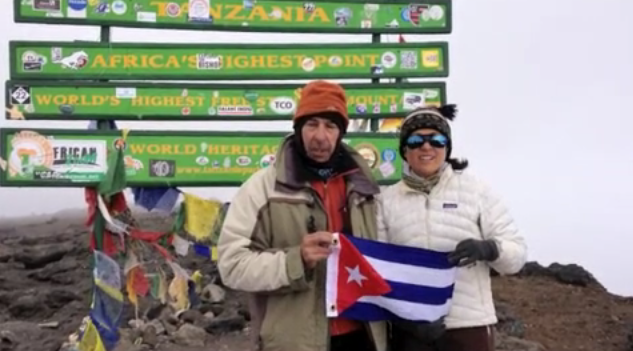| No, I am not asking how many Facebook friends you have. I am asking about casual friends you actually know and keep in social contact with. Let’s say the people you would invite to a large party you are hosting. That figure, according to British anthropologist Robin Dunbar, is approximately 150. In social science that quantity is known as Dunbar’s Number. |
|
 |
| Facial recognition glasses |
|
In the 1990’s, Dr. Dunbar noticed a peculiar correlation between the brain size of primates and the social groups they formed: the bigger the brain size, the larger the social groups. He hypothesized that animals with bigger brains could remember more of their peers and thus interact with a larger number. He extrapolated his findings to the size of the human brain and came up with 150 as the natural limit to the number of meaningful relationships that humans can have. There is also an absolute limit of 1,500 to the number of people we can put a name to a face.
Professor Dunbar explains that we generally have up to five friends -often family members- in our closest circle (your BFFs), ten in the next closest circle, followed by a circle of thirty five, and a final group of one hundred. He estimates that we devote 40 percent of our available social time to the inner core of five friends, and another 20 percent of our time to the ten friends in the next circle, so that altogether we devote about two-thirds of our social time to just fifteen people. Other researchers have found that Dr. Dunbar’s predictions appear to hold true, and Dunbar’s Number has become of interest in anthropology, evolutionary psychology, statistics, business management, and military planning.
For example, the company known for the Gore-Tex brand discovered that when more than 150 employees worked together in one building, it gave rise to a variety of social problems, impairing employee cohesiveness. The company started building work centers with a limit of 150 employees. When production capacity needed to be expanded, the company would build another 150-employee building. Similarly, military companies do not exceed 150 soldiers in most armies.
Cleary, online platforms like Facebook are changing the nature of our human interactions. And, via social media, we can keep up with the lives of more than one hundred and fifty people, but social media cannot replicate the shared experiences of face-to-face social bonding. Without face-to-face relationships, we fail to establish deeper friendships.
Dr. Dunbar explains that the amount of social capital we have is pretty fixed, because it requires time investment. So, the larger the number of people we interact with, the lower the average social capital we can share with each person. The big social question centers on what happens with a generation that is learning to see virtual interactions as the same, or preferable, to old-fashioned physical friendships.
Social scientist fear that, by spending so much time online, new generations may not get enough person-to-person experience to develop effective social interaction skills. Ironically, despite platforms like Facebook, or perhaps because of them, we will enter a future populated with less socially competent people. And, as our virtual friends replace our face-to-face ones, we have no idea of the implications of such a change in our political or economic relationships at large.
Yet, technology may come to the rescue. New technologies such as the facial recognition-enabled smart glasses being developed by several companies would enable the glass wearer to identify any face we look at. These glasses have cameras embedded in the frame which allows the wearer to scan faces to be compared with a database of faces. Using face recognition technology, the name of the person is then sent to a display embedded in the lens of the glasses. Developers claim that facial recognition-enabled smart glasses can identify faces in less than a second.
With these glasses I can identify anyone at the next party without having to admit that I do not remember who they are. My circle of friends would expand exponentially. So much for Dunbar’s Number, I need these glasses.
Please let us know if you  this article. this article. |
|
We welcome your feedback.
Abrazos,
Lily & José
(click on the name to email Lily or Jose) |
|
|
|
|










No comments:
Post a Comment